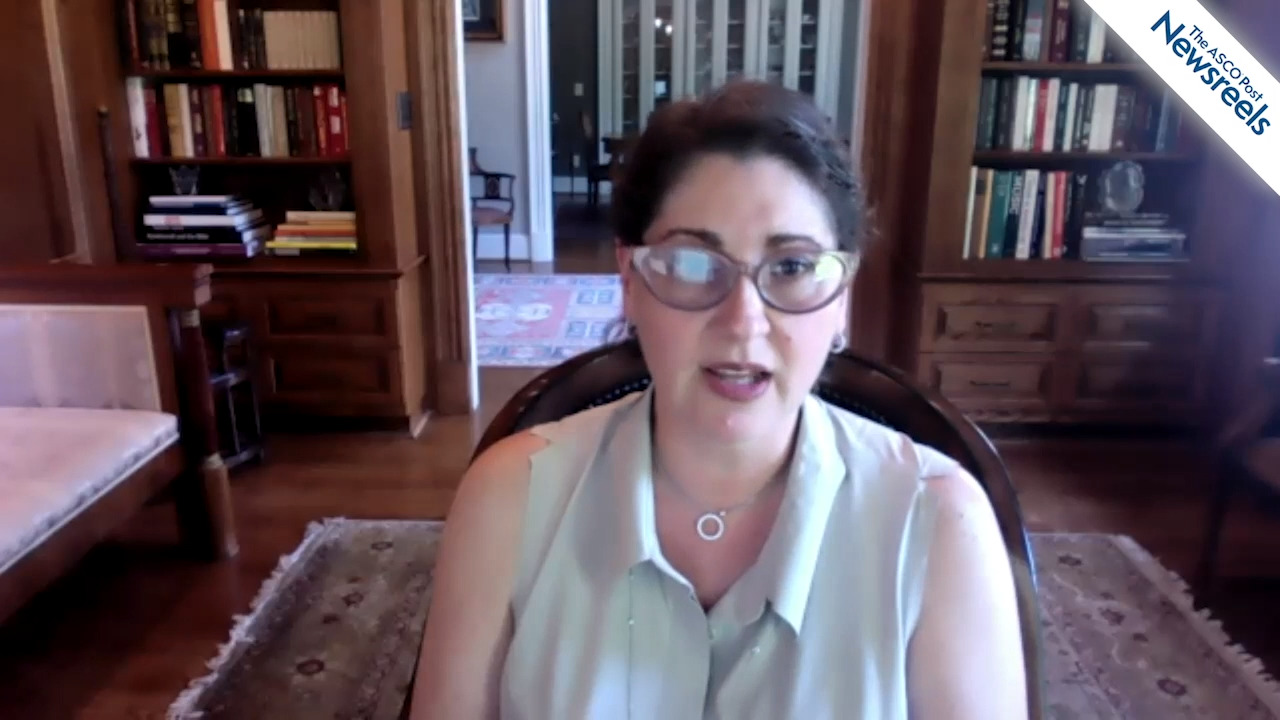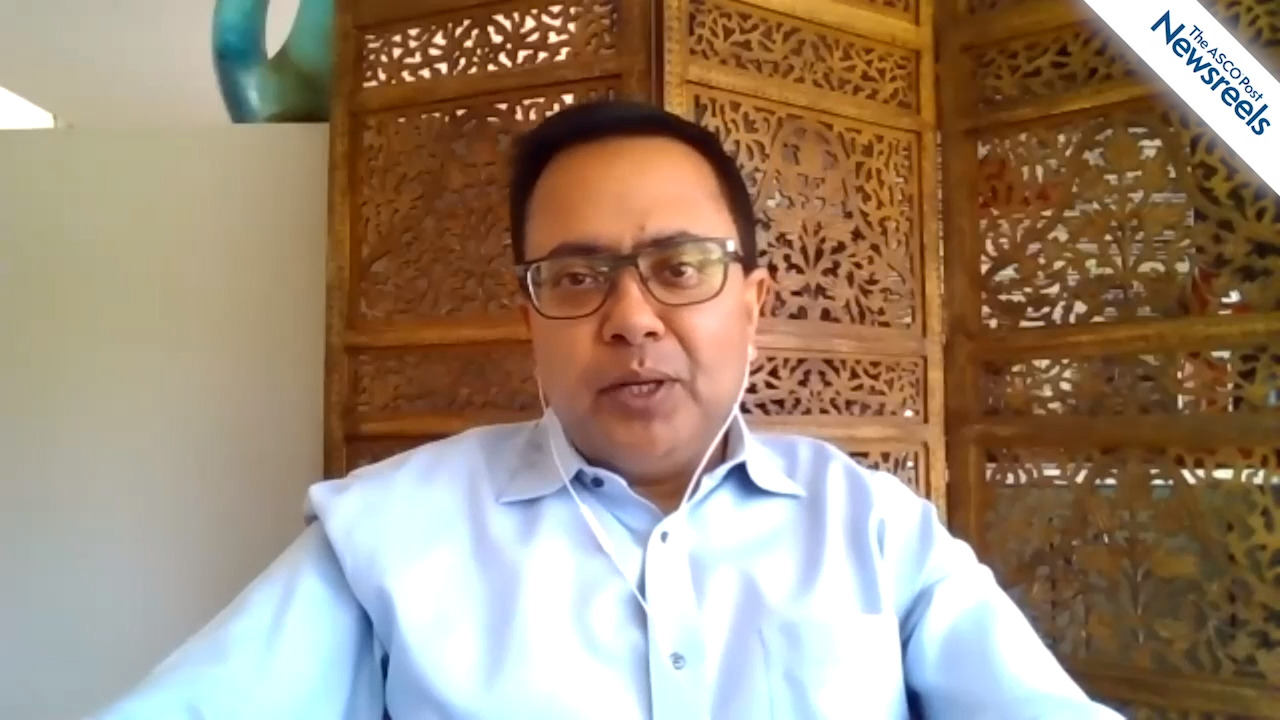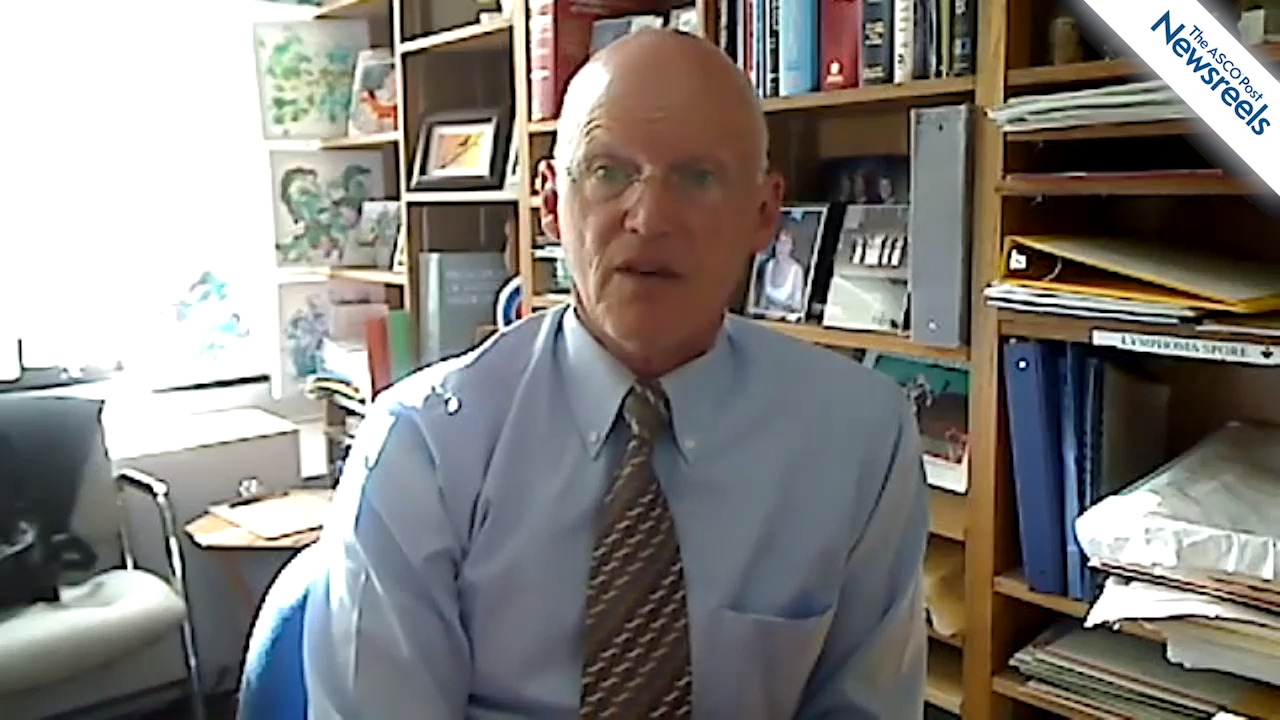Matt D. Galsky, MD, on Bladder Cancer: Neoadjuvant Therapy With Gemcitabine, Cisplatin, and Nivolumab
2021 ASCO Annual Meeting
Matt D. Galsky, MD, of the Tisch Cancer Institute at Icahn School of Medicine at Mount Sinai, discusses results from a phase II trial designed to test gemcitabine and cisplatin plus nivolumab as neoadjuvant therapy in patients with muscle-invasive bladder cancer and to better predict benefit in those who opted out of cystectomy (Abstract 4503).
The ASCO Post Staff
Ingrid A. Mayer, MD, of Vanderbilt University Medical Center, discusses phase III results from a trial that showed patients with triple-negative breast cancer who had residual invasive disease after neoadjuvant chemotherapy had lower-than-expected invasive disease–free survival, regardless of study treatment with platinum-based chemotherapy or capecitabine (Abstract 605).
The ASCO Post Staff
Byoung Chul Cho, MD, PhD, of the Yonsei Cancer Center, discusses study results that showed treatment with the EGFR-MET bispecific antibody amivantamab plus the EGFR inhibitor lazertinib yielded responses in 36% of chemotherapy-naive patients with non–small cell lung cancer whose disease progressed on osimertinib. Genetic biomarkers may be able to identify patients most likely to benefit from the combination regimen (Abstract 9006).
The ASCO Post Staff
Pasi A. Janne, MD, PhD, of Dana-Farber Cancer Institute, discusses study findings that show patritumab deruxtecan is effective in patients with EGFR-mutated and inhibitor-resistant non–small cell lung cancer. Dr. Janne also explains why targeting HER3, a mutation expressed in most EGFR-altered cancers, is a beneficial treatment approach (Abstract 9007).
The ASCO Post Staff
Neeraj Agarwal, MD, of Huntsman Cancer Institute at the University of Utah, discusses phase III data from the SWOG S1216 trial, which evaluated the clinical benefit of using androgen-deprivation therapy with either orteronel (or TAK-700, a CYP17 inhibitor) or bicalutamide in patients with newly diagnosed metastatic hormone-sensitive prostate cancer (Abstract 5001).
The ASCO Post Staff
Brian K. Link, MD, of the University of Iowa Carver College of Medicine, reviews three abstracts on state-of-the-art therapies for mantle cell lymphoma: bendamustine, rituximab, lenalidomide and bortezomib; treatment patterns and outcomes for previously untreated patients; and venetoclax, lenalidomide, and rituximab in newly diagnosed disease (Abstracts 7503, 7504, and 7505).





